Impact of the Entrepreneurial Mindset Profile® (EMP) on Students at the University of San Francisco
Author: Nancy Pridgen ~ Manager of Program & Product Development for the Leadership Development Institute at Eckerd College
Certified Practitioner Monika Hudson is seeing firsthand the value of the Entrepreneurial Mindset Profile® (EMP) for her students at the University of San Francisco. After adding the EMP as a central feature of a capstone course, Entrepreneurial Management, she was pleased to see how students used feedback from the instrument to capitalize on their strengths, work on development needs and clarify future career goals.
The Entrepreneurial Management course is designed to bring together everything the students have been exposed to in their business school education including dimensions such as motivation, marketing, money, manufacturing/operations and management. The centerpiece of the course is the creation of a comprehensive business plan and elevator pitch for a viable venture or an original idea. Students learn various concepts, frameworks, perspectives and tools that relate to many aspects of the entrepreneurial process.
Students have the opportunity to take the EMP at the beginning of the course (10 points) as well as at the completion. After receiving their initial feedback, the students prepare Personal Action Plans using the EMP Development Guide. They also have one-on-one debrief/coaching sessions with the instructor to help analyze the feedback report and get guidance on additional resources that may be of value to them in accomplishing their goals. At the end of the term, they are then asked to prepare a 1-2-page reflection paper (90 points) which explores any differences in their pre- and post-course scores in the Personality and Skills scales as reflected in their Personal Action Plans.
The reflection papers were very enlightening! Students commented on how the EMP helped them in four specific areas:
- Leveraging strengths and improving on weaker business management areas
- Developing expertise with specific entrepreneurial skills
- Getting sound advice and tips from the EMP Development Guide
- Clarifying future career goals
Many students mentioned how valuable it was to learn more about their entrepreneurial skills, have an initial capacity benchmark, and then be able to put real plans into action:
“After taking the EMP and comparing my pre and post semester results, I have learned a lot about both my personality and skills. By being able to complete the EMP at the beginning of the semester and again at the end, I had the opportunity to create a semester long action plan at the start of the semester in order to leverage my existing strengths, skills, and qualities, while also improving on my weaker traits. While I was first unaware of certain qualities in myself, the EMP assessment provided me with valuable knowledge that prompted me to improve these qualities throughout the semester.”
“Overall, being able to do the EMP assessment before and after the semester has really provided me with critical information about myself. I learned that having an action plan and an outline of how to create improvements in my everyday life leads up to major changes.”
“Overall this has been an eye-opening experience for me and a great learning tool. I am so glad USF has required me to take this class and these evaluations throughout the class. This way I was able to look back on the progress I have made and how my hard work this semester has paid off.”
Other students used the feedback results to concentrate on specific scales where they scored lower than they anticipated:
“For my skills (the “what and how”), the one thing I needed to improve on this semester was my interpersonal skills. On my first EMP I scored a 2.4, and now I am at a 3.4 which is right in line with Entrepreneurs. The way I worked on this this semester was trying to hear people out more, and getting to know people on my team. Often, I can be very cut and dry and to the point. But as I got to know my team more and bonded with them, I found it to be much easier to be more sensitive to everyone’s wants and needs. All it takes is time, and getting to know people, and then it develops naturally on its own. Now I see why in businesses team building exercises are such a big deal.”
“From the initial EMP assessment, I decided to improve on my skills by looking at the EMP Development Guide. I chose to implement changes for the categories of Execution and Self-Confidence. For Execution, I made a list of activities that I needed to do and tried to maintain a balance between long term and day-to-day strategies. For Self-Confidence, I tried to look at obstacles as opportunities, and I was proactive in improving my skills in areas such as public speaking. I implemented these changes during my internship as well as in class during pitch practices. I tried to create a little schedule of “to-do” tasks in order to better plan and execute my activities. In addition to this, I tried to step out of my comfort zone to do things that I knew I needed to excel in, even though I was taking a risk in doing so. After taking the EMP a second time, I saw that I had made improvements to several other categories due to these changes.”
Many students spoke of the value of the EMP Development Guide in getting them started on an Action Plan and providing them with realistic steps to take to implement it:
“In relation to the skill side of the assessment, my results showed that I need to work on my idea generation ability. Since my first EMP results demonstrated my lack of ability to come up with things or ideas to execute a plan, I knew I had to create a personal plan for change. I did not know where to start with this, but the EMP Development Guide gave me specific suggestions. For idea generation, I took the guide’s advice and started to set a goal of keeping up with current trends while also reading and listening to things that gravitate towards creativity and innovation. For me, I decided to subscribe to the Bloomberg app to read one article once a day on my phone and to also set a goal to listen to one podcast a week on “How I Built This,” with Guy Raz.”
“The quality that was the lowest at the time for me was execution, which was the one that I chose to focus on and develop. The Development Guide had many helpful suggestions in developing this skill, but three that I thought could really benefit me where I am currently in life were:
- If you are responsible for a team, establish clear-cut goals, and make sure that everyone clearly knows who is doing what to minimize the chance of misunderstanding and conflict. Be specific about your expectations regarding quality, deadlines, innovation, collaboration, etc.
- Anticipate crises and barriers to success. Have plans in place to deal with them before they actually happen.
- Knowing how to leverage people and resources is an important aspect of execution. Examine the people or procedures that are obstacles to getting things done. Focus on the top two or three, and write out a specific plan to address them.
By using these three suggestions, I am better at strategizing and planning any tasks at hand, tapping into resources available, and putting an idea into motion. By focusing on execution, I have also gotten better at time management and making sure that I am using the time that I am allotted, effectively and wisely.”
The feedback was also useful to students in terms of their future career goals:
“When thinking of the EMP, I realized the value of this assessment and how it really relates to my future career goals. Even though I am not currently planning on becoming an entrepreneur, I do want to become a corporate manager someday. I find it very valuable that this assess,emt shows the scores of both types of people in comparison to your own.”
The process of taking the instrument, analyzing the feedback, using the resources in the EMP Development Guide, creating an Action Plan, and actually implementing specific steps has had a tremendous effect on USF students. This semester, Monika was joined by her colleague June Lee, who was recently certified as an EMP practitioner, in an expansion of this exploratory effort.


